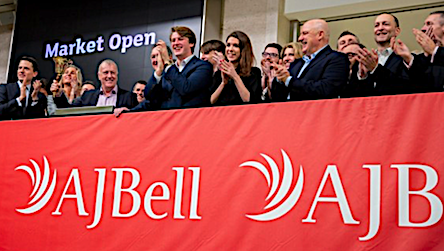Three-quarters of investment trusts outperform their sister open-end fund over both one year and 10 years — but the trusts are more volatile than their fund counterpart 90% of the time.
Over 10 years, closed-end investment trust companies have beaten open-end funds run by the same investment management team 77% of the time, and outperformed them 74% of the time over one year.
That’s according to new research from investment platform AJ Bell, which said investment trusts’ ability as companies to use gearing or borrowing can work as an accelerator on performance.
AJ Bell personal finance analyst Laura Suter said fund managers will often run both a fund and an investment trust company, investing in similar assets — but investors “canny” enough to pick the right one can double their returns.
“On the whole, investment trusts outperform their equivalent fund versions three-quarters of the time, over both one year and 10 years,” said Suter.
“What’s more, the trust will be cheaper in two-thirds of the cases.
“The level of performance difference between a fund and trust run by the same fund manager is alarming in some cases, with some managers delivering more than double the performance in the trust rather than the fund.
“Another example saw the investment trust investors get returns 260 percentage points higher with the trust.
“One example is the Baillie Gifford Shin Nippon investment trust and Baillie Gifford Japan Smaller Companies fund, both run by Praveen Kumar since 2015.
“Both the portfolios invest in smaller Japanese companies, benchmarked against the MSCI Japan Small Cap index.
“To highlight how similar the portfolios are, nine companies appear in both the fund and the trust’s top 10 holdings.
“However, over 10 years Baillie Gifford Japan Smaller Companies has handed investors 421.9%, while the Shin Nippon trust has delivered 678.4%.
“During that same period the index has delivered 200%, so both have outperformed the market.”
Suter added: “Andrew Brough’s Schroder UK Mid 250 fund and Schroder UK Mid Cap trust both invest at least 80% of their assets in the FTSE 250 index of smaller UK companies, have around 60 holdings each, and have a handful of holdings that overlap between the top 10 holdings.
“However, the trust has delivered more than double the performance of the fund over the past 10 years.
“One differentiator is that the trust has the ability to borrow up to 25% of the value of the fund.
“That highlights a big factor in some trust’s outperformance, which is their ability to use gearing or borrowing.
“This works as an accelerator on performance, meaning that when the trust is rising it sees larger returns than a vehicle that doesn’t use gearing.
“The flip-side to this is that trusts generally deliver more volatile performance, meaning that they are more prone to sharper rises and falls in values – in 90% of cases the trust delivered more volatile performance than the fund.
“Another example of a big performance difference is JP Morgan Russia fund and the JP Morgan Russian Securities trust, both run by Oleg Biryulyov and Habib Saikaly.
“Again nine companies are in the top 10 holdings of both the fund and trust, and both focus on investing in Russian companies.
“However, the trust has less of the portfolio invested in smaller Russian companies, which may have helped to propel it to deliver more than double the performance of the fund over the past decade.”
